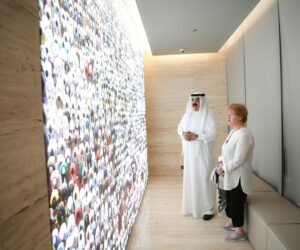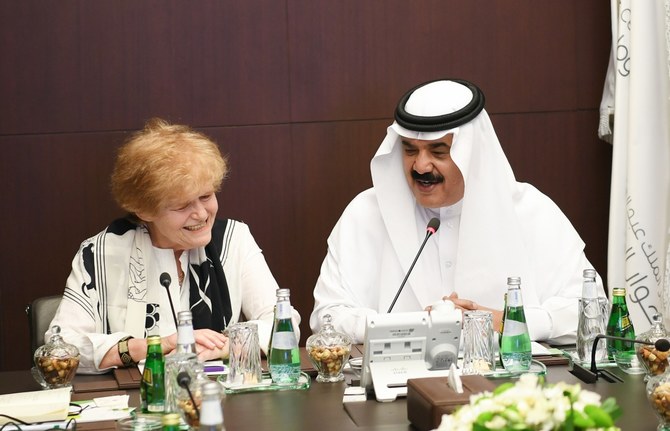- They were visiting the King Abdulaziz Center for National Dialogue, the leader of which stressed the importance of communication and dialogue in building bridges between cultures
RIYADH: A visiting US delegation led by Ambassador Deborah Lipstadt, Washington’s special envoy for monitoring and combating antisemitism, was briefed this week on the work of Saudi Arabia’s King Abdulaziz Center for National Dialogue.
After being welcomed to the center by its secretary-general, Abdullah Al-Fawzan, and other senior representatives, the delegates were given a brief presentation about its activities designed to promote and encourage greater tolerance among peoples.
They were also briefed on the results of the first study of its kind in the region on tolerance, carried out by the center to the highest scientific standards, which found that Saudi society is tolerant of other cultures and civilizations.
In greeting the visitors on Tuesday, Al-Fawzan stressed the importance of encouraging communication and dialogue between peoples, to help build bridges of understanding among cultures, as part of the efforts being made by the Kingdom, through its Saudi Vision 2030 development plan, to support tolerance and promote peaceful coexistence based on the principles of moderate Islam.

He said that Saudi society accepts and coexists with people from other societies and cultures, as evidenced by the large number of expatriates who live and work in the Kingdom. This shows that the values of tolerance, peaceful coexistence and unity are not new concepts in the country, he added.
Since its inception, the center has placed great importance in promoting the values of citizenship among among all sections of society, making it a mainstay of its work, Al-Fawzan said.
The members of the US delegation were also given a tour of the center’s Interactive Dialogue Exhibition so that they could learn more about the Kingdom’s efforts to support communications between cultures and civilizations. They also heard about local projects developed by the center to help strengthen the nation’s social fabric, and its regional and global initiatives designed to help build and enhance cultural diversity and human commonalities.

